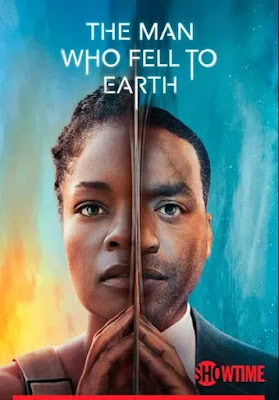At least Chuck Krantz won’t have to worry about fees for 401K withdrawals. Apparently, he is retiring right in the midst of doomsday. The world is ending, but his grateful colleagues are celebrating with billboards all over town. People are definitely confused and, initially, viewers will be too. However, director-screenwriter Mike Flanagan eventually brings everything together in The Life of Chuck, based on the Stephen King novella, which opens this Friday in New Yok theaters.
It is the end of the world—and the end of an era wherever Krantz works. California is sinking into the sea, the internet and infrastructure are failing, and suicides are skyrocketing. The apocalyptic crisis compels school teacher Marty Anderson to reconnect with his ex-wife Felicia Gordon, an exhausted RN, who feels a similar desire for his familiar and comforting presence. Yet, amid all the chaos, they both find all the Chuck Krantz signage rather bizarre.
What is going on here? Act II illuminates little, especially since Flanagan’s adapted narrative flows in reverse order, ending with Act I. It also happens to be a dance number, featuring Krantz and Taylor Franck, a drummer played by “The Pocket Queen,” according to the credits. You might guess she knows how to socket in the pocket, which indeed turns out to be the case.
All will eventually be explained in Act I, which is presented as the third act. Finally, we witness Krantz’s childhood, which is sometimes sad and sometimes mysterious, but the under-sized teen also has his small triumphs.
Frankly, some viewers might be tempted to watch the walk-outs, which could very well be plentiful. However, that would be a mistake, because you really need to see the entire film for all the pieces to fall into place. The good news is the a-ha moment really happens and gives pretty darned significant meaning to everything that came before.
This is definitely Stephen King more in his Shawshank or Stand By Me bag, even though there are considerable fantastical elements—that would be spoilery to describe. It is hard to categorize and it will confuse some viewers, but this is probably the best King adaptation since The Outsider.







